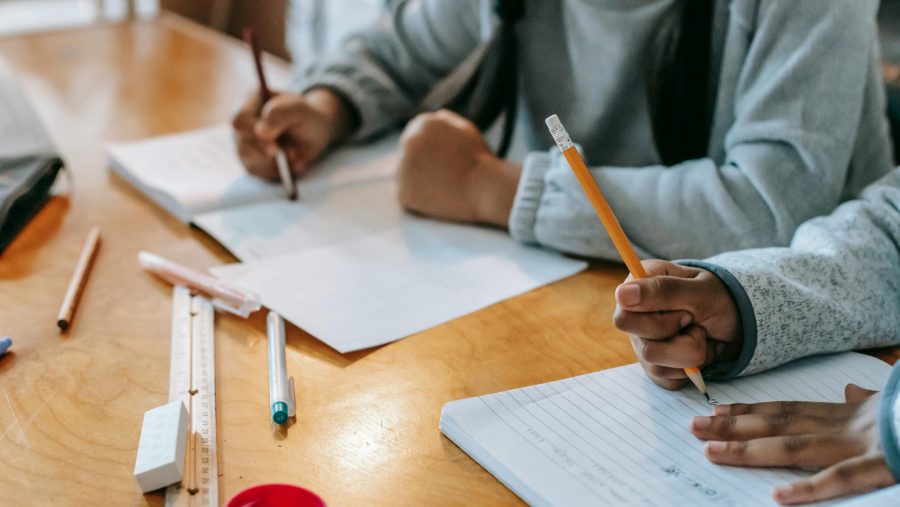The Metro: Detroit public schools write the next page of literacy recovery
Robyn Vincent, David Leins, The Metro September 4, 2025Detroit’s youngest readers are showing their strongest M-STEP performance in years, but closing the gap to proficiency will take much more work.

While statewide proficiency in third- and fourth-grade reading fell, Detroit Public Schools Community District continues to defy the trend, achieving its highest third-grade reading performance in 11 years. This progress stands out amid widespread declines and reflects the impact of targeted investments in early literacy and support systems.
Detroit’s schools are still recovering from the deep wounds of systemic neglect. Redlining, segregation, and a crash in city revenue starved schools of resources. Meanwhile, state funding for Detroit continues to lag behind wealthier districts.
Over the years, control of Detroit schools has taken many turns that have added to the trauma.
First, it was mayoral control, and later, state‑appointed emergency managers. These interventions were supposed to help, but they often made things worse.
Through it all, poverty has entrenched itself in the households of many Detroit students. Housing instability, unreliable transportation, and inaccessible healthcare have added trauma on top of trauma. And then came the pandemic, erasing precious early learning time.
But like the city itself, Detroit schools have been slowly, steadily rising. The latest glimmer is the new M‑STEP results, which show Detroit public school students largely making steady incremental improvements in math and English.
A Chalkbeat Detroit analysis of Michigan’s 2024-25 standardized tests puts the results into deeper context, showing Detroit’s third‑graders reading at their best level in over a decade.
Still, only about 13% of DPSCD third graders reached reading proficiency, that’s compared to nearly 39% statewide.
So what do these modest gains really mean, and how long can they last?
Dr. Nikolai Vitti, superintendent of Detroit Public Schools Community District, joined Robyn Vincent to answer these questions.
Subscribe to The Metro on Apple Podcasts, Spotify, NPR.org or wherever you get your podcasts.
Listen to The Metro weekdays from 10 a.m. to noon ET on 101.9 FM and streaming on demand.
Trusted, accurate, up-to-date.
WDET strives to make our journalism accessible to everyone. As a public media institution, we maintain our journalistic integrity through independent support from readers like you. If you value WDET as your source of news, music and conversation, please make a gift today.Donate today »
Authors
-
 Robyn Vincent is the co-host of The Metro on WDET. She is an award-winning journalist, a lifelong listener of WDET, and a graduate of Wayne State University, where she studied journalism. Before returning home to Detroit, she was a reporter, producer, editor, and executive producer for NPR stations in the Mountain West, including her favorite Western station, KUNC. She received a national fellowship from Investigative Reporters and Editors for her investigative work that probed the unchecked power of sheriffs in Colorado. She was also the editor-in-chief of an alternative weekly newspaper in Wyoming, leading the paper to win its first national award for a series she directed tracing one reporter’s experience living and working with Syrian refugees.
Robyn Vincent is the co-host of The Metro on WDET. She is an award-winning journalist, a lifelong listener of WDET, and a graduate of Wayne State University, where she studied journalism. Before returning home to Detroit, she was a reporter, producer, editor, and executive producer for NPR stations in the Mountain West, including her favorite Western station, KUNC. She received a national fellowship from Investigative Reporters and Editors for her investigative work that probed the unchecked power of sheriffs in Colorado. She was also the editor-in-chief of an alternative weekly newspaper in Wyoming, leading the paper to win its first national award for a series she directed tracing one reporter’s experience living and working with Syrian refugees. -
 David Leins is the senior producer of WDET’s daily news and culture program, The Metro. He has produced several award-winning podcasts and multimedia series at WDET including Tracked and Traced, Science of Grief and COVID Diaries, which earned a National Edward R. Murrow Award for Excellence in Innovation. He previously led WDET’s StoryMakers program. David has an M.A. in Media Arts and Studies from Wayne State University, and a B.A. in anthropology from Grand Valley State University with a minor in Arabic. David teaches podcasting at Wayne State University and is an alumnus of the Transom Audio Storytelling Workshop.
David Leins is the senior producer of WDET’s daily news and culture program, The Metro. He has produced several award-winning podcasts and multimedia series at WDET including Tracked and Traced, Science of Grief and COVID Diaries, which earned a National Edward R. Murrow Award for Excellence in Innovation. He previously led WDET’s StoryMakers program. David has an M.A. in Media Arts and Studies from Wayne State University, and a B.A. in anthropology from Grand Valley State University with a minor in Arabic. David teaches podcasting at Wayne State University and is an alumnus of the Transom Audio Storytelling Workshop. -




